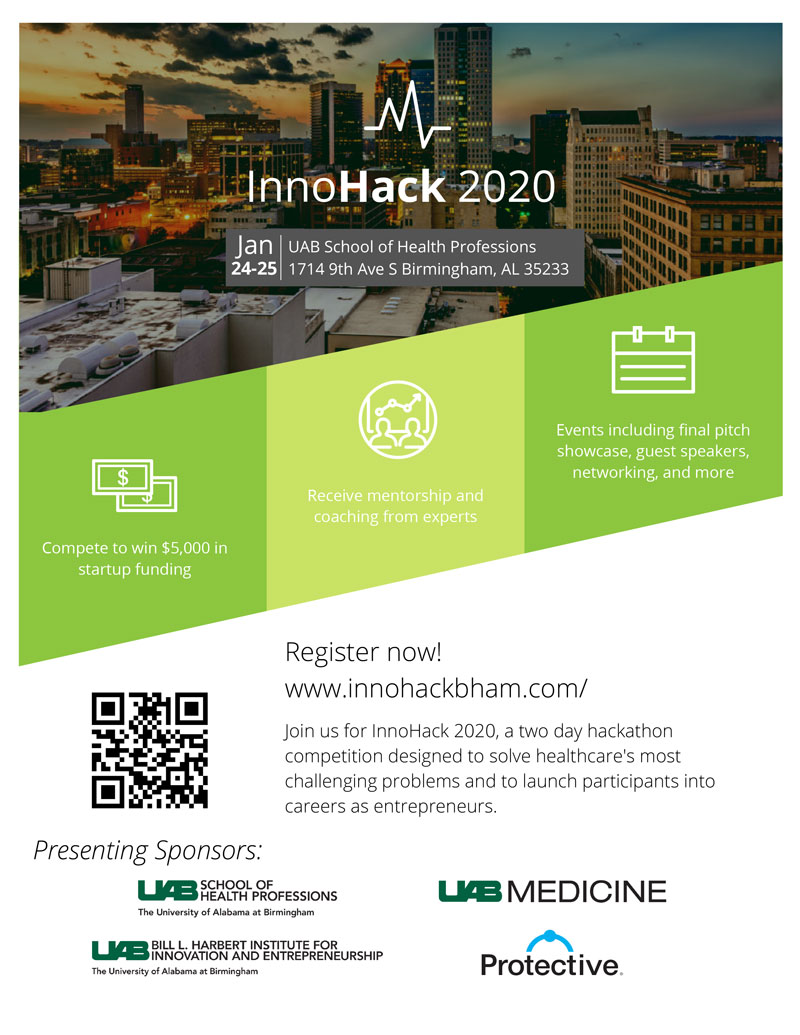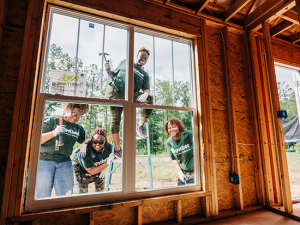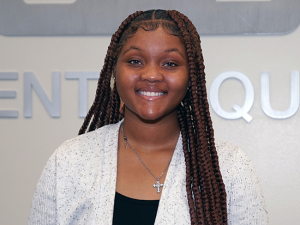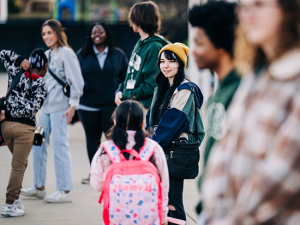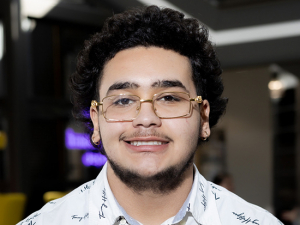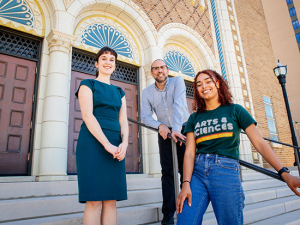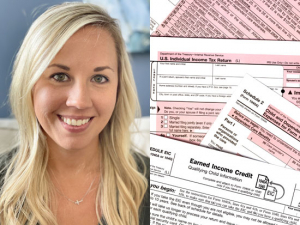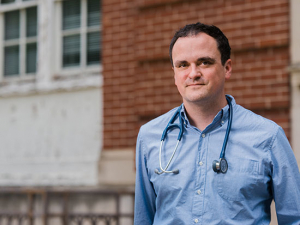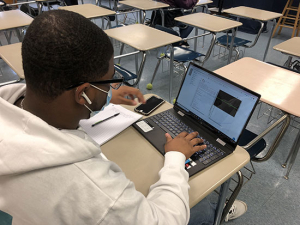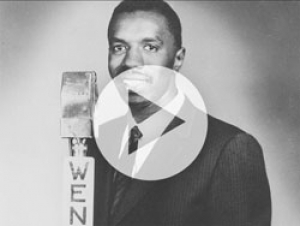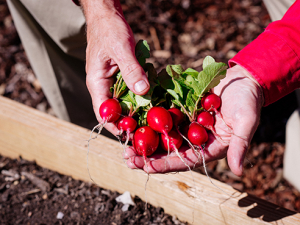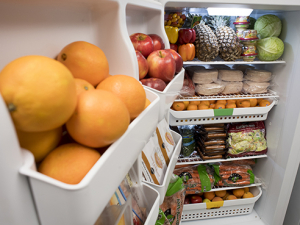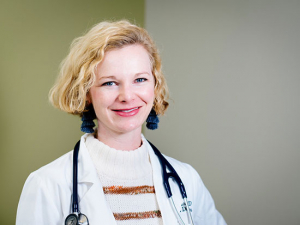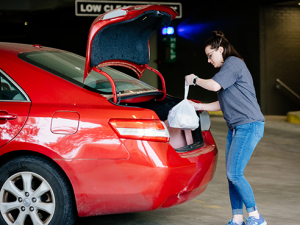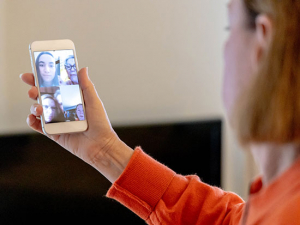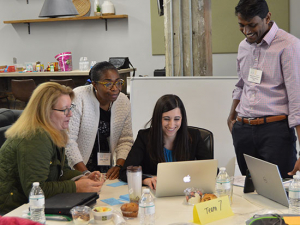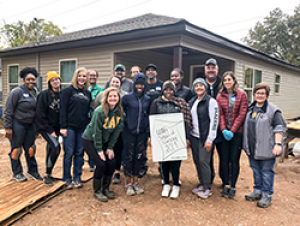How would you feed a person on $4 a day — in a way that is healthy and accessible? That’s the practical challenge faced by the one in six Alabama residents who are on SNAP Benefit food-assistance plans, which provide recipients $4.17 per day. There are 11,000 people in Jefferson County with no ready means of transportation who are more than a mile from the nearest grocery store, according to the U.S. Department of Agriculture. Many of them live in the Ensley, Woodlawn and East Lake communities — only a 10-15 minute drive, but a two-hour walk or hour-long bus ride from UAB’s Southside campus.
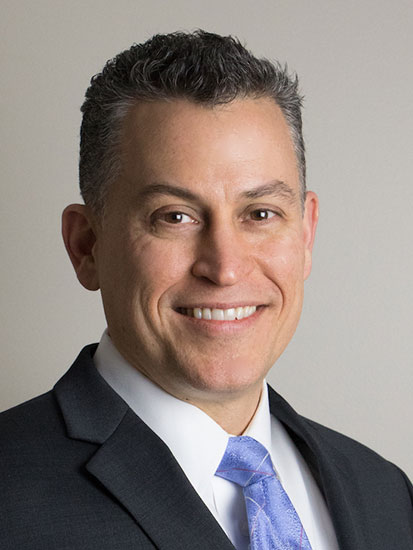 "I’m not researching a cure for a disease, and I’m not a nurse or surgeon providing lifesaving care, but I can do events like this," said Robert Howard, deputy Chief Information Officer at UAB, who is volunteering as a mentor at InnoHack 2020.The answer isn’t obvious, but it probably lies somewhere at the intersection of public health, nutrition, out-of-the-box thinking, business savvy and technology. And some of the smartest thinkers on those topics, and their students, are already in town.
"I’m not researching a cure for a disease, and I’m not a nurse or surgeon providing lifesaving care, but I can do events like this," said Robert Howard, deputy Chief Information Officer at UAB, who is volunteering as a mentor at InnoHack 2020.The answer isn’t obvious, but it probably lies somewhere at the intersection of public health, nutrition, out-of-the-box thinking, business savvy and technology. And some of the smartest thinkers on those topics, and their students, are already in town.
Problem, meet problem-solvers
InnoHack 2020 aims to pair problem with problem-solvers starting Jan. 24 in a two-day competition with $5,000 in startup funding at stake. The 80 competitors at the previous edition of InnoHack in 2018, which focused on the opioid epidemic, included UAB and UAB Medicine students, staff and faculty and members of the local business community. Participants are assigned to teams specifically designed to maximize inter-professional and inter-generational collaboration. Throughout the event, teams will receive insight, mentorship and coaching from experts including UAB’s Robert Howard, assistant vice president and deputy Chief Information Officer; Joel Dobbs, executive in residence at business school; and Saksham Narang, venture advisor for UAB’s Harbert Institute for Innovation and Entrepreneurship. Strategic advisors for the InnoHack team include Randa Hall, assistant professor in the Department of Health Services Administration, Melissa Mancini, associate vice president for strategy and business development at UAB Health System, Rubin Pillay, chief innovation officer for the School of Medicine, Daniel Pridgen, a management associate in strategy and business development at UAB Health System and Will Wright, vice president of digital and innovation at Protective Life.
Discover your passion projectCombine your skills and passion to improve our community: Find your niche among the hundreds of opportunities in BlazerPulse. |
Improving society through processes and products and integrating engagement throughout the university are both key objectives of Forging the Future, UAB’s strategic plan. InnoHack 2020’s driving question aligns with the UAB Grand Challenge, Healthy Alabama 2030: Live HealthSmart, which aims to boost Alabama’s position in state health rankings by fostering innovative projects in Birmingham and beyond. (The Grand Challenge is itself a central component of Forging the Future.) Students gain invaluable entrepreneurship experience, and all competitors have a chance to network with other innovative thinkers and earn significant startup funding.
What drives you?
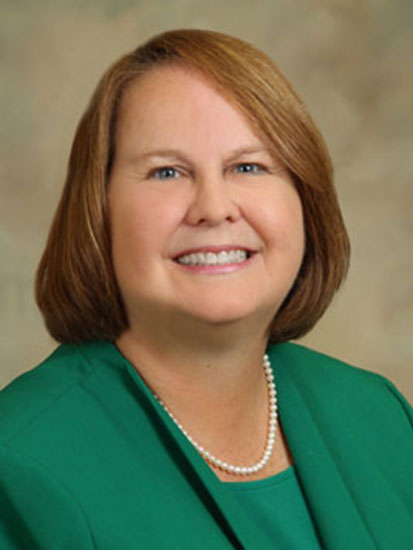 Randa HallBut what’s in it for the mentors and strategic advisors? Mind you, UAB faculty and staff participating in community service is no surprise. The university’s new BlazerPulse platform, launched in early 2019 to organize and measure engagement as part of the Forging the Future, has recorded nearly 58,000 hours of service by members of the UAB community in its first year. Why InnoHack, though? We spoke with a number of UAB participants to find out — their answers reveal a combination of passion and purpose that drives any successful volunteer effort.
Randa HallBut what’s in it for the mentors and strategic advisors? Mind you, UAB faculty and staff participating in community service is no surprise. The university’s new BlazerPulse platform, launched in early 2019 to organize and measure engagement as part of the Forging the Future, has recorded nearly 58,000 hours of service by members of the UAB community in its first year. Why InnoHack, though? We spoke with a number of UAB participants to find out — their answers reveal a combination of passion and purpose that drives any successful volunteer effort.
“The problem is something that is meaningful,” said Howard, who teaches courses in health care innovation, tech planning and budgeting in the School of Health Professions and Collat School of Business in addition to his day job as deputy CIO; he will be a mentor for InnoHack 2020. “I love that UAB makes a difference in the community and nation. I’m not researching a cure for a disease, and I’m not a nurse or surgeon providing lifesaving care, but I can do events like this. In this small way, I feel proud to be a part of UAB’s impact. And it’s a blast. The energy in these events, where you have bright minds focusing on solving meaningful problems, is incredible.”
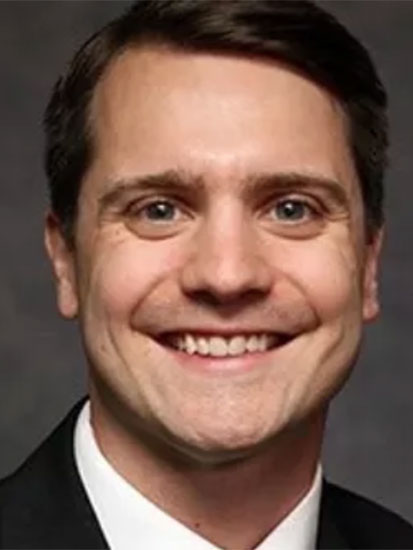 Daniel Pridgen“In 24 hours, through brainstorming and teamwork, the teams are able to bring their ideas together into an implementable solution,” said Hall, a strategic advisor, who helped launch InnoHack in Birmingham in 2015 with Teresa Shufflebarger, an alumna of UAB’s Master of Health Services Administration program then working at the Baptist Health System and who now runs her own startup, Allegro Partners. Shufflebarger “wanted to expose UAB students to the concept of a hackathon and I was interested in the MSHA students having more interaction with other health care students within UAB,” Hall said. “I really enjoy observing how the entrepreneurs work with students and other working professionals who are passionate about the InnoHack challenge and see how differently they may think about how to solve the challenge. It has definitely helped me in my role of connecting alumni from our department with others in the community who may be able to translate ideas into action.”
Daniel Pridgen“In 24 hours, through brainstorming and teamwork, the teams are able to bring their ideas together into an implementable solution,” said Hall, a strategic advisor, who helped launch InnoHack in Birmingham in 2015 with Teresa Shufflebarger, an alumna of UAB’s Master of Health Services Administration program then working at the Baptist Health System and who now runs her own startup, Allegro Partners. Shufflebarger “wanted to expose UAB students to the concept of a hackathon and I was interested in the MSHA students having more interaction with other health care students within UAB,” Hall said. “I really enjoy observing how the entrepreneurs work with students and other working professionals who are passionate about the InnoHack challenge and see how differently they may think about how to solve the challenge. It has definitely helped me in my role of connecting alumni from our department with others in the community who may be able to translate ideas into action.”
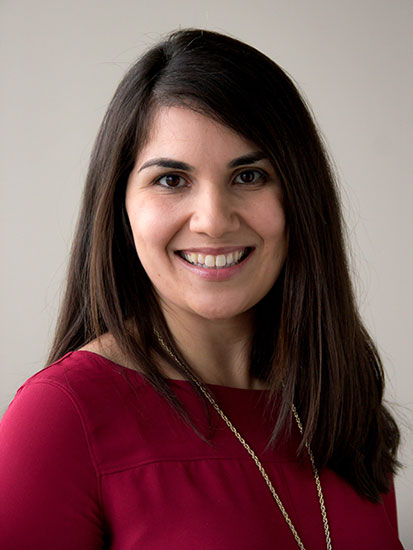 Melissa ManciniDeveloping and nurturing a culture of innovation is a foundation of UAB Medicine’s strategic plan, AMC 21, Mancini noted. “We believe we cannot achieve our goals without innovation,” she said. “Our philosophy is that everyone is an innovator — innovation should not be a mysterious concept only reserved for a select few.” Mancini gets regular reminders of that fact through the Health System’s Innovation Board, which funds pilot projects based on ideas for improvement suggested by staff members, and through the Health Innovation Academy that she co-directs with Pillay. “I am always amazed by the number of incredible ideas that exist and simply need an outlet to become reality. Our hope is that InnoHack will be a catalyst for developing ideas and relationships long after the event ends.”
Melissa ManciniDeveloping and nurturing a culture of innovation is a foundation of UAB Medicine’s strategic plan, AMC 21, Mancini noted. “We believe we cannot achieve our goals without innovation,” she said. “Our philosophy is that everyone is an innovator — innovation should not be a mysterious concept only reserved for a select few.” Mancini gets regular reminders of that fact through the Health System’s Innovation Board, which funds pilot projects based on ideas for improvement suggested by staff members, and through the Health Innovation Academy that she co-directs with Pillay. “I am always amazed by the number of incredible ideas that exist and simply need an outlet to become reality. Our hope is that InnoHack will be a catalyst for developing ideas and relationships long after the event ends.”
InnoHack has a “unique focus on combating social problems with the creation of sustainable business solutions through entrepreneurship,” Pridgen said. “It broadens your perspective of what is possible and challenges you to approach problems in your respective field differently. Also, it reminds us that we are all innovators. Innovation is not relegated to a secret group of people who are trying to reinvent the internet in the company basement, but to all of us who wish to make our careers, teams and organizations more effective. And I’m empowered to apply that innovation mentality to my job every day.”
